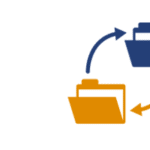Introduction
The recently released document presenting the results from the Council on Governmental Relations (COGR) survey on the cost of complying with the new National Institutes of Health (NIH) Data Management and Sharing (DMS) policy has garnered significant attention. The COGR survey provides valuable insights into the financial burden of complying with the NIH DMS policy.
Takeaways
- Reveals that complying with the policy has led to a significant increase in administrative costs for institutions. The need to develop and maintain data management plans, establish data repositories, and train researchers in data-sharing practices has added substantial financial strain.
- Highlights the need for institutions to invest in infrastructure and resources to support data management and sharing. This includes the development of robust data storage and sharing platforms, implementing secure data transfer protocols, and ensuring long-term data preservation—all of which require financial commitments.
- Emphasizes the importance of providing researchers with training and support to navigate the complexities of data management and sharing. Institutions are investing in workshops, seminars, and resources to equip researchers with the necessary skills and knowledge, further adding to the financial implications.
Implications for Researchers and Institutions
The COGR survey results underscore the challenges researchers and institutions face in complying with the NIH DMS policy. The financial burden of implementing and maintaining the necessary infrastructure, developing data management plans, and providing training can strain limited resources. This may have broader implications, including potential impacts on research funding, resource allocation, and the ability to conduct cutting-edge research.
Training on the DMS Policy
CITI Program is currently offering two webinars to help those involved in research understand the scope, requirements, and impact of the new policy.
- New Data Sharing Requirements for NIH-Funded Research
- NIH Data Management and Sharing Policy for SBER: Implications for Researchers and IRBs
Conclusion
The release of the COGR survey results offers valuable insights into the cost implications of complying with the new NIH DMS policy. It calls for a deeper understanding of the challenges researchers and institutions face in meeting the policy requirements. By recognizing these challenges and engaging in collaborative efforts, stakeholders can work towards finding solutions that foster data sharing while ensuring the sustainability and advancement of scientific research.




